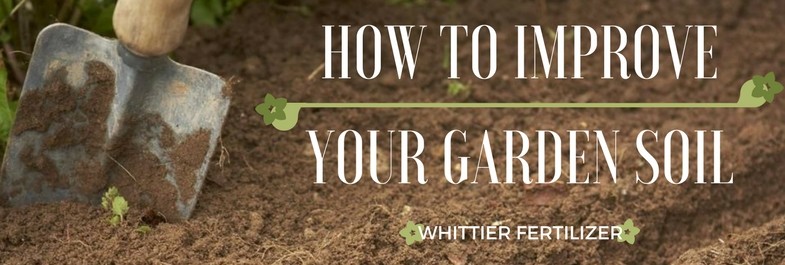How to Improve Your Garden Soil

If you want a lush and productive garden each year, then you need to learn how to care for the soil and provide your plants with the nutrients they need. Good soil is dark and filled with all of the vital ingredients plants need to grow, but it can be difficult to have fortified soil when you put your garden in the same spot every year. Instead of destroying your yard by moving your garden around, you can improve the garden soil in your favorite spot and get the kind of garden you want every year.
Turn The Soil
Each year, you need to dig up and turn your land to replace the barren dirt with fertile soil. Turning over your soil helps to rejuvenate your planting area naturally, and it gives your soil a chance to recover from last year’s garden. When you turn the soil, you also allow the fertile ground underneath to get exposed to healthy air and sunlight, which will help your garden to grow.
Spread Fertilizer
By spreading fertilizer and compost over your garden planting area, you will add valuable nitrogen and other nutrients to your soil. Contrary to popular belief, not all manure makes for good fertilizer. To avoid any possible damage that can be done by using the wrong manure for your garden, you should utilize reliable, organic, products to enrich your soil.
Using a compost will add a layer of nutrients to your soil that are released over a long period of time. This will give your soil a constant supply of the organic materials it needs to produce a lush garden.
Deep-Rooted Plants
Utilizing deep-rooted plants can both preserve your garden soil and give you better growing results. Set aside sections of your garden for plants that have roots deep enough to reach into the untapped and fertile soil a foot or more down. These plants will grow strong and healthy, while not disrupting or taking away any of the nutrients from the top layer of soil.
Cover Crops
Cover crops have short roots and offer plenty of nutrients to the top layer of soil when they decay after the growing season is over. Plants such as clovers, beans, and peas release nutrients into the soil when they are done growing that can be as effective as adding compost or fertilizer. Move your patches of cover crops around each year to offer the maximum coverage to your garden soil.
Utilize Mulch
Mulch acts as a way to protect soil from too much moisture and extreme temperatures, and it also helps preserve the nitrogen in the soil. Whittier offers a mulch that protects and sustains soil without any of the side effects that can come from other forms of mulch. When you use the right mulch in your garden, you will preserve the good soil that is available and provide more nutrients for your plants.
A good garden is a labor of love, and there are plenty of ways to preserve your soil to get the results you want. If you take the time to improve your garden soil, then your garden will reward you year after year with the kind of appearance and crop output that you want.
Posted in: Gardening
Leave a Comment (0) ↓